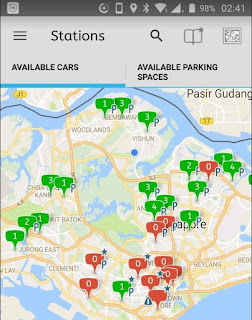Medical need is your top priority in insurance
We do not know when accident will happen but it is happening every day. If health and safety are your top concerns, medical care should be your top priority in insurance. The reason is simple: you may not wish to knock someone but you cannot stop someone from bumping into you. Singapore government realized the needs for medical insurance for all Singaporeans and therefore MediShield is born. In 2009, CPF revamped MediShield to increase premium for better coverage. The revised Medishield aims to take care of as much as 80 percent of the big bills. Yet, 100,000 women are uninsured because they are housewives with no MediSave. So, is MediShield an effective medical care insurance for us?Weaknesses of MediShield
From Dr Money website, we realized that Medishield is working harder as it is paying 53% of the premium collected while private insurance companies are paying only 22% of the premium collected. However, it is not an all-rounder. Below are some of its limitations:- Age insured is capped at 85. If you live beyond 85, you lose your "Shield";
- MediShield only covers hospitalization/surgical/day surgery and approved outpatient treatments sought in MOH-accredited medical institutions in Singapore. Expenses incurred at overseas cannot be claimed;
- MediShield pays PART OF THE BILLS at Class B2/C wards in restructured hospitals. If you choose to stay in Class A/B1 wards or private hospitals, you will rather die when you receive the bills. A shiny example is spelt out in MOH website whereby Medishield pays only S$1438 out of S$50,000; and
- MediShield does not pay your deductible and co-insurance payments. The complex calculation of deductible and co-insurance draws more money from MediSave and less money is available for MediShield deduction. For long-term patients, they experienced rapid vaporization of their CPF MediSave account and when it is dry, there is no more payment available for future basic MediShield premiums.
Sourcing for alternatives from private insurance companies
In view of these issues, private insurance companies fill in the vacuum of providing the needful. They provide extensive coverage, overseas coverage, guaranteed lifetime policy renewal and even final expenses (how nice they put it for coffin money!). They offer riders for sophisticated customers who demanded ZERO-dollar upfront. However, the deductible and co-insurance are higher than MediShield which makes the MediSave pool dry up even faster in certain circumstances. The complexity of different plans further confuses the consumers as they cannot compare the plan effectively. Every financial agent is biased and only introduces plans whereby he/she maximize the commissions to reward the promotion effort. The consumers are suffering from this system as they may buy a plan which they cannot afford in the future. However, you can stay in Class B1/A wards or private hospital if you choose the right policy (So it is encouraging to die faster in a private hospital than to suffer MediSave deficit with a long-term illness!)The need for a comparison table
A comparison table is needed to compare the plans available in the market and there must be indicators to see which plan is comparatively better. I limit the comparison to the next tier of upgrade to MediShield when full coverage (full payment of deductible and co-insurance) is not covered. More restrictions are set to simply the table as depicted below:- Limit for policy year and lifetime are adequately covered. According to the blog of Mr Tan Kin Lian (ex-CEO of NTUC Income): "Out of 2 million people who are insured for the past 10 years, nobody has ever accumulated a lifetime bill of more than $300,000. Most of the large bills are probably less than $100,000." Unlimited or half a million lifetime limit are just marketing gimmick to sign you up for the plan;
- Out-patient medical bills are not included to simplify the table;
- Riders are not included (except for NTUC PLUS/ASSIST for simple comparison); and
- Specific benefits (eg. Free child coverage), relating to various private companies, are also excluded.
Benchmarks
To compare policies, benchmarks are introduced. Below are the descriptions:- Percentage of bill paid by insurance measures the amount of medical bill paid by the insurance company over the total medical bills. (Higher is better)
- Claims/Premium paid measures the insurance payout over the premium you paid over the years. (Higher is better)
- Future Premiums (to be paid till your death) considers your ability to service your premium till you die. (Lower is better)
The file (version 1) can be downloaded HERE (outdated).
Update: Version 11 is available HERE. See some illustrations HERE.
Feel free to explore the possibilities and email me of any issues. The file will be constantly updated and I will provide some comparisons in the coming weeks when I am free. If you wish to inject constructive ideas, feel free to email me at sglongfeng@gmail.com. I hope it will assist in choosing the best plan for you.


Do you have a version for 2011? I think there have been changes made to the various plans
ReplyDeleteIf I have time, I wish to update myself to keep track of the latest changes. I look forward to review the MediShield soon. Stay tune...
Delete